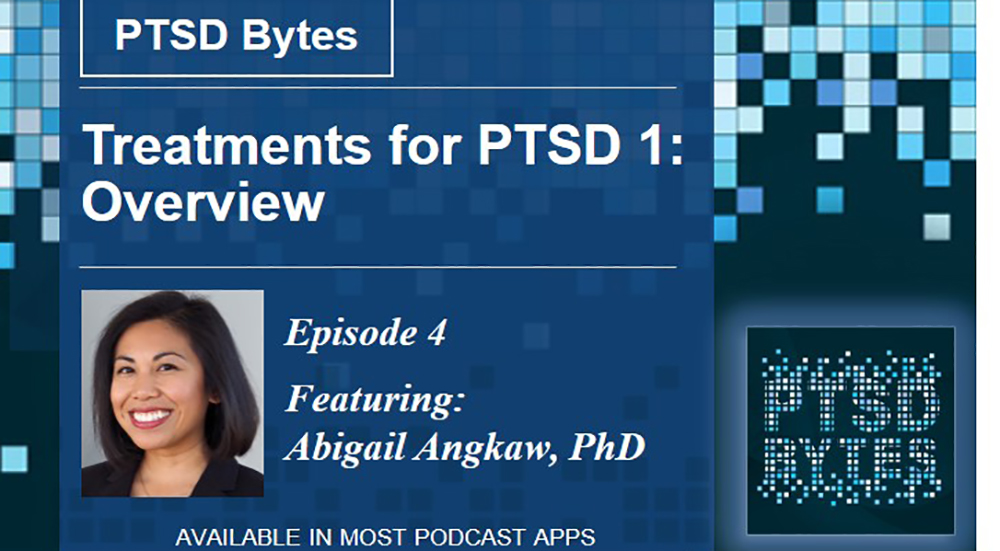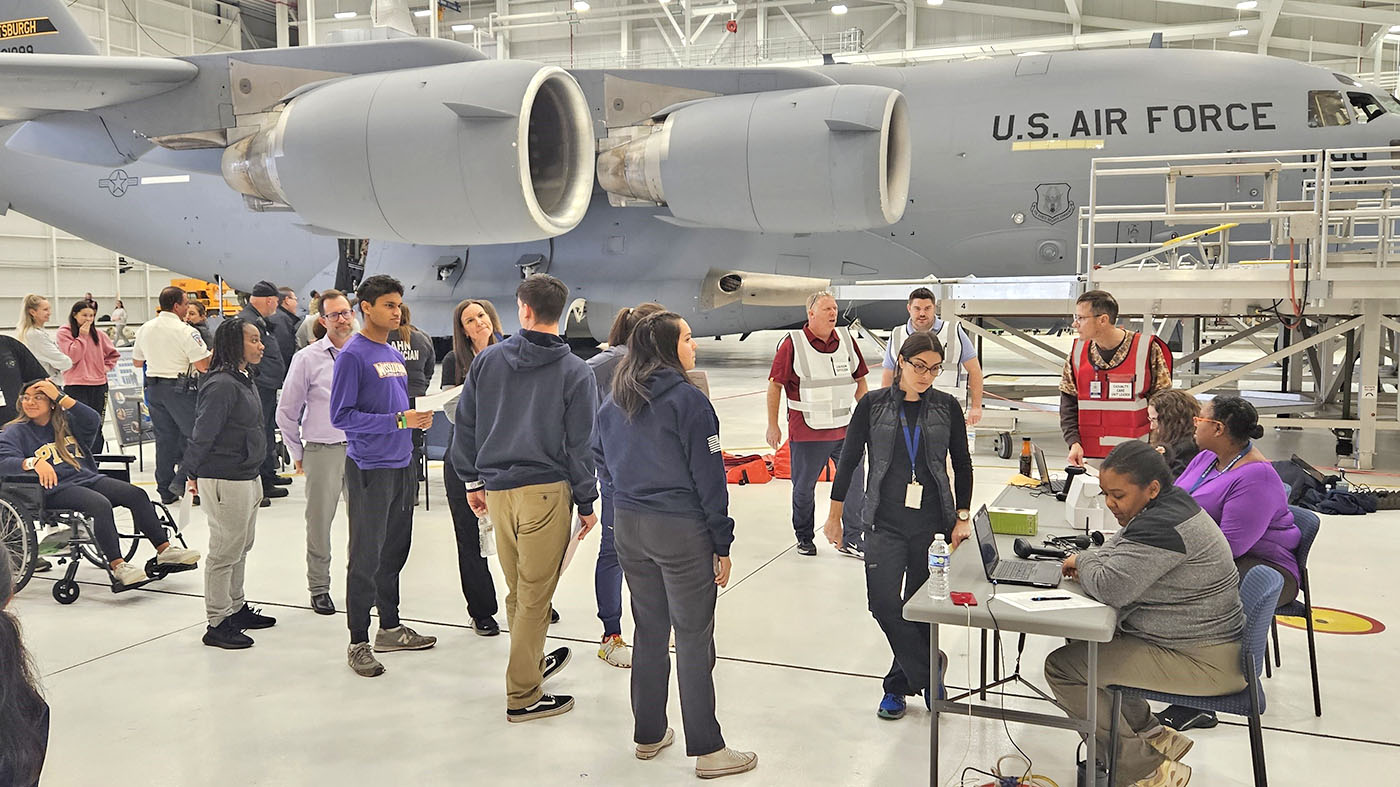https://www.spreaker.com/user/11014928/forreview-ncptsd-episode4-angkaw-012622-
In this episode of PTSD Bytes, Dr. Abigail Angkaw, of the San Diego VA Healthcare System, talks about evidence-based treatment for PTSD. The treatments she mentions were found to reduce PTSD symptoms in multiple credible research studies across different populations.
Top-tier treatments
VA worked with the Department of Defense to create a set of Clinical Practice Guidelines to determine which treatments are evidence-based. The first set of recommended treatments are considered “top-tier.” They are individual, trauma-focused psychotherapies that typically occur on a weekly basis.
Trauma-focused means that these psychotherapies focus on the memory or the meaning of the trauma. Prolonged exposure and cognitive processing therapy are two examples of trauma-focused therapies.
Second-tier treatments
There are also treatment options if you do not want to focus on your trauma right now but still want to seek help. These second-line approaches are still effective and include treatments such as stress inoculation training and certain medications. It is also possible for you to try both therapy and medication together instead of just one or the other.
Choosing a type of treatment
If you are trying to decide on a type of PTSD treatment, Angkaw recommends the PTSD Treatment Decision Aid. This tool has information about different types of treatments as well as a way for you to compare them and make the decision that is best for you.
Another important aspect of PTSD treatment is shared decision-making between the patient and the provider. This means that the two work together to find a treatment option that is best for the patient.
Seeking treatment for PTSD
If you have hesitations about seeking help for PTSD or have tried in the past without success, Angkaw says that treatments have changed a lot in the past 20 years. She recommends trying again. To get started, you can contact your VA or community health care provider and they can help you navigate to mental health services.
The PTSD Treatment Decision Aid also has offers suggestions for how to find PTSD treatment and how to discuss options with providers.
Additional Information:
- More information about PTSD treatments.
- VA/DoD Clinical Practice Guidelines and related resources.
- AboutFace video: Veterans talk about how PTSD treatment can turn your life around.
- “Evidence-based Treatment: What does it mean?” whiteboard video.
- More PTSD Bytes episodes.
If you are a Veteran who is experiencing a crisis or supporting a loved one who is, call 1-800-273-8255 and press 1 for immediate assistance, or chat online at VeteransCrisisLine.net/chat
Topics in this story
More Stories
Air Force Veteran Shireta Jones overcomes obstacles with support from VA and adaptive devices to continue her passion for pickleball.
Pittsburgh VA and its partners practice relocating hospitalized patients during disasters and public health emergencies.
VA and Veterans Yoga Project are working together to make more Veterans aware of the benefits of yoga while offering more classes.






